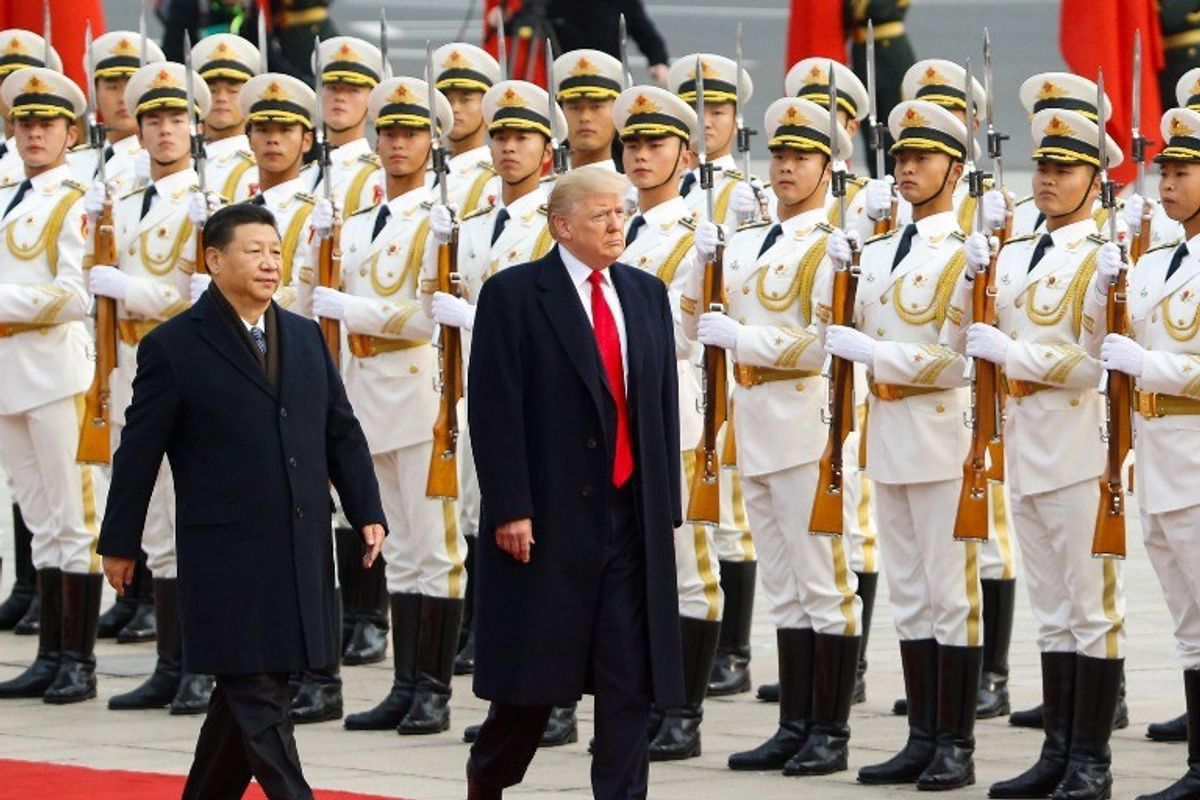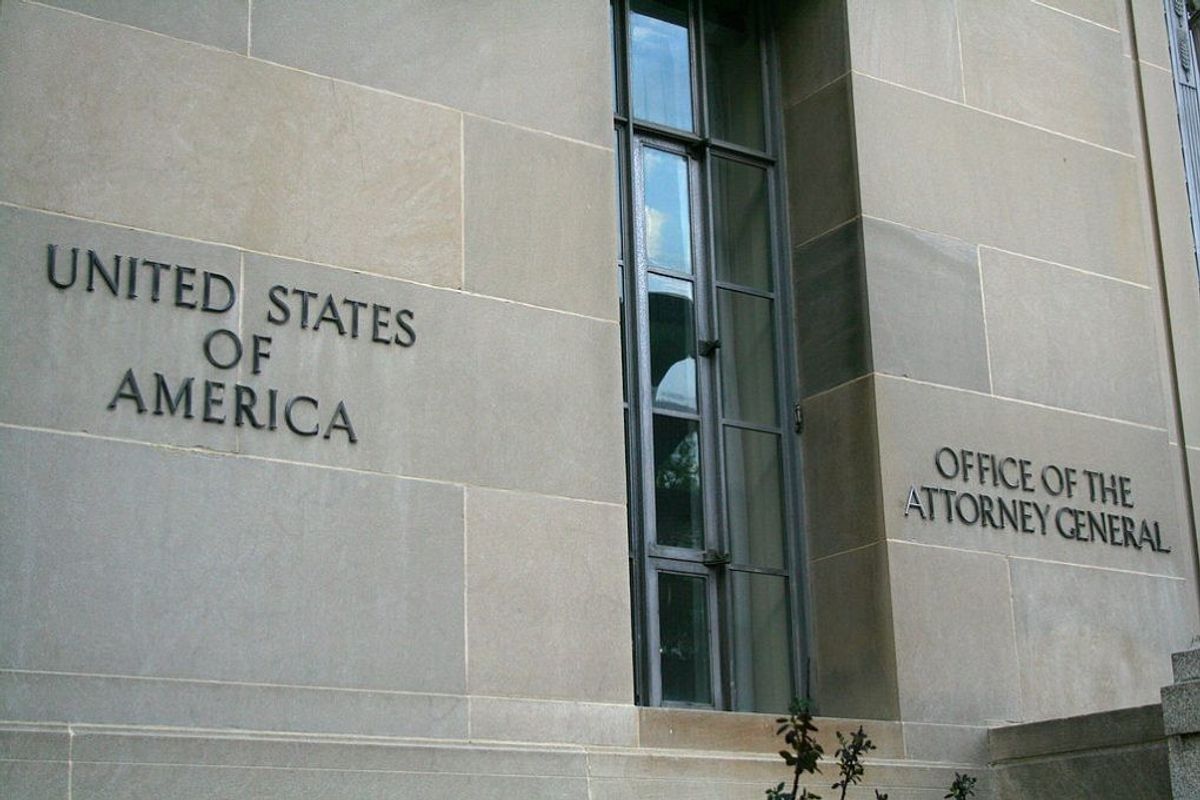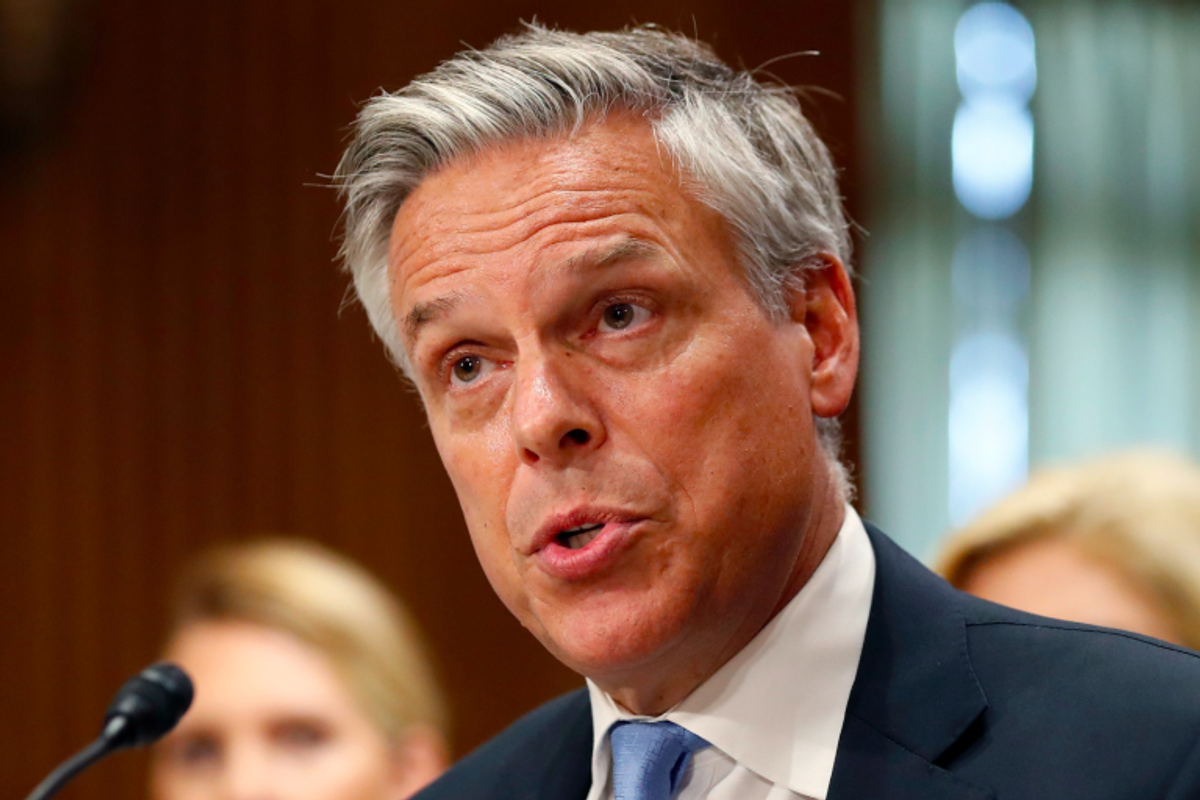In the wake of this week’s deadly terrorist attack in New York City, Attorney General Jeff Sessions on Thursday defended the Trump administration’s so-called “extreme vetting” measures and rebuked technology companies for failing to quickly provide law enforcement with encrypted information to assist terrorism investigations.
He also defended the U.S. legal system, a day after President Donald Trump called it a "joke" and a "laughing stock.”
“If anyone has any doubt about that, they can ask the more than 500 criminals whom the Department of Justice has convicted of terrorism-related offenses since 9/11,” he said in a speech in New York. “And they can ask the dozens of enemy combatants in Guantanamo Bay.”
Sessions said that the Trump administration will use “all lawful tools at our disposal” in the face of terrorist attacks, including prosecution of alleged terrorists at the U.S. detention facility in Guantanamo Bay, Cuba.
Trump had originally called for the New York attack suspect to be sent to Guantanamo, but reversed himself by Tweet Thursday, saying the federal process is faster.
Prosecutors on Wednesday brought terrorism charges against Sayfullo Saipov, 29, for the truck attack that left eight people dead. They allege he had propaganda related to the so-called Islamic State on his cell phone, and Saipov told investigators he was inspired by the group’s videos.
Sessions broke down three areas he claimed are necessary for the United States to “protect itself” from terrorist attacks — enforcing hardline immigration policies, requiring that the tech sector grant law enforcement access to electronic evidence, and maintaining surveillance powers for the intelligence community.
The latest version of Trump’s travel ban, which is for now blocked by a federal court, would restrict travel on immigrants from Chad, Iran, Libya, North Korea, Somalia, Syria, Yemen and on government officials from Venezuela. Uzbekistan has not been included on any iteration of the ban.
“The president was right to issue his executive order, the travel ban, so-called, to ensure proper vetting,” Sessions said.
Saipov entered the United States legally in 2010 under a program called the diversity visa lottery — long a target of immigration hardliners — that the attorney general called for Congress to abolish and replace in favor of a merit-based system.
“The president’s plan is essential to protecting our national security, while also banning drunk drivers, fraudsters, gang members and child abusers,” he said.
The president’s immediate translation of the attack into a call for an immigration crackdown has drawn wide criticism from Democrats. “Instead of politicizing and dividing America, which he always seems to do at times of national tragedy, should be focusing on the real solution — anti-terrorism funding — which he proposed cutting in his most recent budget” Democratic Sen. Chuck Schumer of New York said in a statement Wednesday.
The president has also announced plans to accept no more than 45,000 refugees over the next year. Sessions said that the Department of Justice “currently has ongoing terrorism-related investigations against hundreds of people who came here as refugees.”
Sessions advocated for Congress to reauthorize Section 702 of the Foreign Intelligence Surveillance Act, which sunsets this December, a provision that allows the intelligence community to target communications of non-U.S. persons overseas that can also incidentally — and controversially — sweep up information related to U.S. citizens.
Sessions said that “with the international terrorist threat decentralized and increasingly online,” it is “more important than ever” that the U.S. have the capability provided by Section 702. He called it “the key to prevention of attacks on our country.”
Members of Congress are currently debating the powerful surveillance authority and its civil liberties implications before it expires on Dec. 31, 2017.
“We cannot unilaterally disarm ourselves,” Sessions said. “We cannot afford to let this law expire.”
A number of senators have called for extensive reforms of Section 702, setting up a contentious battle over the next two months. Sen. Ron Wyden (D-OR) said in a recent statement that "without common-sense protections for Americans' liberties, this vast surveillance authority is nothing less than an end-run around the Constitution.”
The attorney general also used his remarks on Thursday to blast the technology sector for refusing “to cooperate with law enforcement or even comply with court orders.” Sessions said that over the last year, the FBI was unable to open access to nearly 7,500 mobile devices even though there were “court orders or legal authority to do so.”
“This failure to get encrypted information in a timely manner causes law enforcement to waste even more valuable time and resources, and it could have potentially deadly consequences,” he said.
Mackenzie Weinger is a national security reporter at The Cipher Brief. Follow her on Twitter @mweinger.











